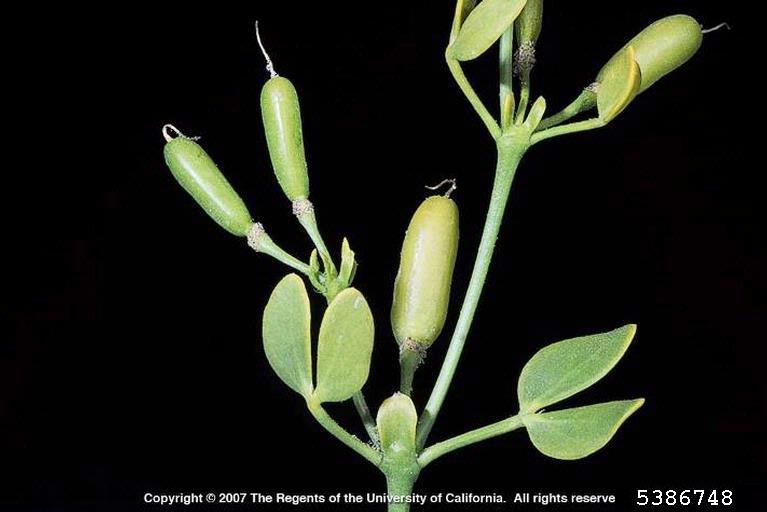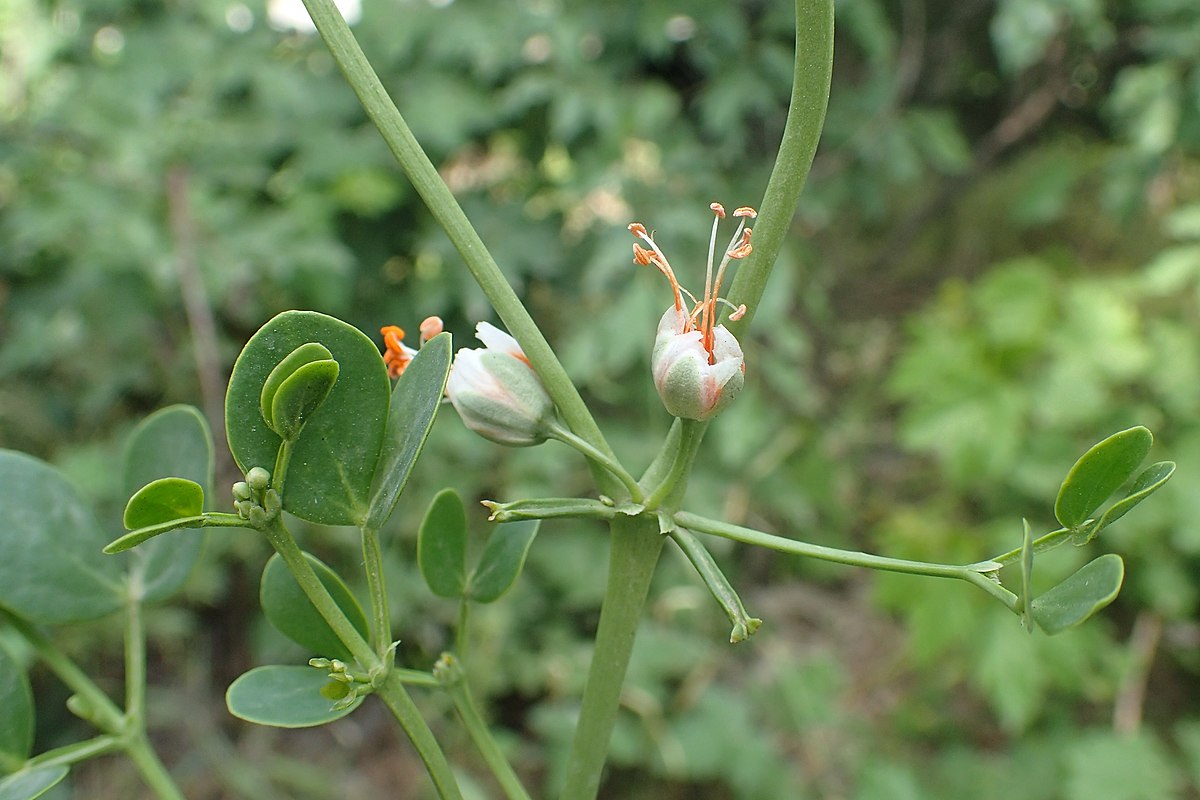Syrian Bean-Caper

Syrian Bean-Caper
(Zygophyllum fabago)
Priority: - Prevent / EDRR
Tags: Agricultural | Terrestrial
Identification and Reproduction
Identification:
- Syrian bean-caper is a herbaceous plant that has a shrubby growth pattern, reaching up to 60 cm tall.
- Leaves are opposite and compound. Each leaf is composed of a pair of oval-shaped leaflets that make a distinct Y-shape. Leaves are succulent, smooth and thick.
- Flowers bloom from May to August. They are white, yellow or copper-orange in colour. Flowers are made up of 5 petals.
- Seedpods are long, oblong and contain 5 seeds.
Reproduction:
- This plant reproduces from seed and spreads laterally from creeping roots.
Habitat & Ecology
- Large infestations normally takes over roadsides.
- It invades dry habitats such as rangeland and grasslands.
- It is also drought tolerant.
- It has yet to be observed in Canada, but is currently in several states in the US.
Impacts
Social:
- This plant is unpalatable to livestock.
Ecological:
- It decreases native biodiversity by forming dense monocultural patches.
- Syrian bean-caper outcompetes native vegetation for water and space.
Management
Prevention is a high priority for this species.
- Learn to identify this plant and report any sightings to your local Canadian Food Inspection Agency (CFIA).
- Purchase and plant certified, clean seed mixtures.
- Be cautious of imported grass seed mixtures, be sure to check seed labels.
- Clean clothing, pets, equipment and vehicles before leaving infested sites.
- Do not purchase, plant, or distribute this plant in seed or propagative form.
Resources
For more details check out the CFIA's factsheet on Syrian bean-caper- Zygophyllum fabago here.
Header photo (Yuriy Kvach).




